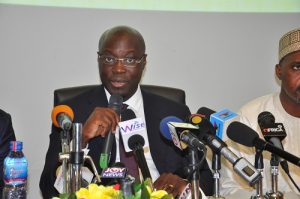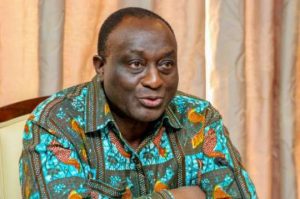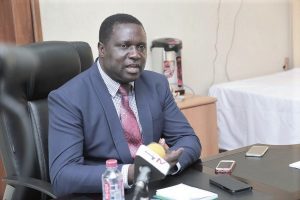Six Members of Parliament (MPs) have expressed their intention to jointly sponsor a bi-partisan Private Members Bill for Parliament to pass specific legislation to expressly prohibit and criminalise the practice or advocacy of homosexuality in Ghana.
The Bill, if passed, will seek to further strengthen legal jurisprudence and existing legislation on unnatural carnal knowledge to reflect the current state of affairs.
“It is our belief that all members of this House will support this Bill when it comes before the House. We also hope to see action from the Executive through the Ministry of Foreign Affairs calling to order all diplomats whose actions constitute an affront to our laws and sovereignty,” the sponsors of the bill stated.
The statement bordered on the opening of an advocacy office for lesbians, gays, bisexual, transgender, queer and intersexual (LGBTQI+) rights in Ghana and the need for a strong national response.
Sponsors
The sponsors of the Bill from the minority National Democratic Congress (NDC) side are Mr Samuel Nartey George (Ningo-Prampram), Mr Emmanuel Bedzrah (Ho West), Mr Samuel Okudzeto Ablakwa (North Tongu) and Mrs Adwoa Ntoso (Krachi West).
From the majority New Patriotic Party (NPP) side, the sponsors include Mr Andy Appiah Kubi (Asante Akim North), Mr John Ntim Fordjour (Assin South), Mr Kwaku Asante-Boateng (Asante Akim South) and Mrs Francisca Oteng (Kwabre West).
Breach of Constitution
Presenting the statement, Mr Sam George said as a nation, Ghanaians were completely taken aback by news of the opening of a LGBTQI+ office in Accra on January 31, 2021.
He said in attendance at this event were some delegates from the European Union (EU), the Australian High Commissioner, Mr Gregory Andrews; the Danish Ambassador, Mr Tom Norring, among others.
He said in a brazen disregard for the position of Ghana’s laws on homosexuality, the EU on its official Facebook Wall advertised its participation in this event and reiterated its support for all civil society organisations supporting LGBTQI+ groups.
“This is nothing short of an open attack on the laws of our country and such unfortunately irresponsible conduct cannot be overlooked or treated with kid gloves. The sovereignty of this country must be respected and protected.
“Mr Speaker, without mincing words and stating as a matter of fact, any action aimed at promoting LGBTQI+ activities in this country is illegal and a clear breach of our constitution and criminal codes,” he said.
Homosexuality constitutes a crime
The MP noted that Article 12(2) of the Constitution dictated the entitlement of all citizens to fundamental human rights and freedoms subject to the respect for the rights and freedoms of others and most importantly for the public interest.
He indicated that the Ghanaian customary law viewed homosexuality as an anathema and did not in any way, shape or form support the promotion of the perverted alien culture of homosexuality.
Furthermore, he said Section 104 of Ghana’s Criminal Offences Act, 1960 (Act 29) as amended by Act 646 of 2003 criminalised unnatural carnal knowledge.
“Section 104(2) of the Criminal Code states that unnatural carnal knowledge is sexual intercourse with a person in an unnatural manner or with an animal.
“The perverted actions of homosexuals, whether consensual or not, constitutes a crime under Ghanaian law as it is unnatural carnal knowledge of another. This is the position of our law,” he said.
Mr George pointed out that “as a representation of our culture, traditions, religious and customary beliefs and morals as a country, any attempt to depart from the current position of the law on homosexuality would be an unprecedented assault on the fabric of the traditions and customs as Ghanaians.”
“It will be an attempt to alter the very fibre and DNA of what makes us Ghanaian. The unitary position of the several cultures and ethnicities within the jurisdiction of the Republic on an abhorrence for homosexuality is testament to its unacceptability to the vast majority of Ghanaians,” he said.
Private Members Bill
In July 2020, Parliament adopted the proposal for the enactment of the Private Members Bill which made the introduction of bills in Parliament for consideration no longer the sole prerogative of the Executive.
The adoption of the proposal paved the way for individual Members of Parliament (MPs) who are not ministers of state or non-government officials, as well as private citizens, to introduce or initiate bills on the floor of the House for consideration.
This is in sharp contrast with the culture where bills only emanate from the Executive, which introduces bills on the floor of Parliament through ministers of state and other government officials.







